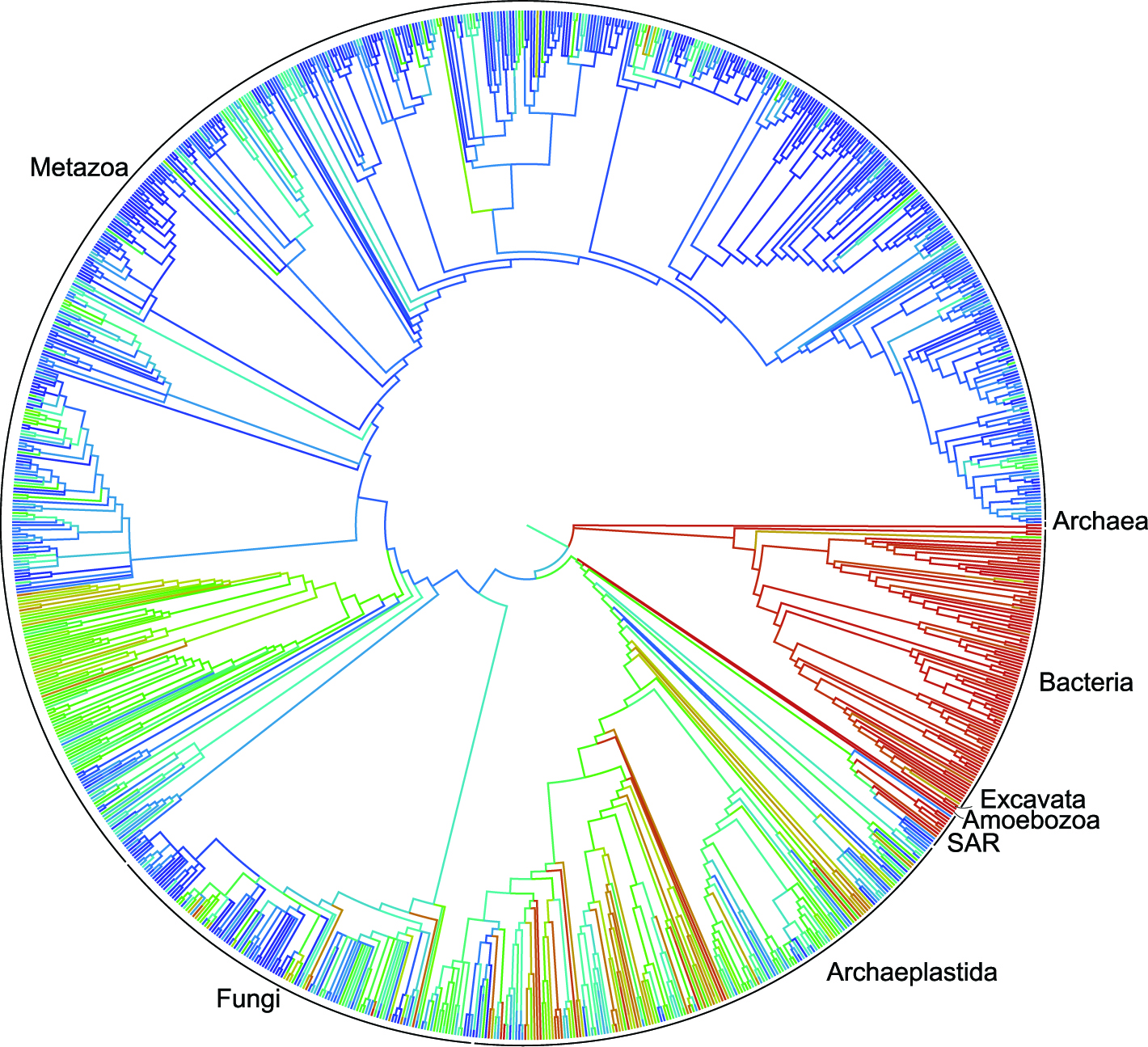Humans, bacteria, daffodils: We’re a diverse bunch on the surface, but trace each and every Earthling back far enough, and you’ll arrive at a common ancestor. For the first time, scientists have built a comprehensive tree of life that binds us all together.
A draft of the One Tree, published Friday in the Proceedings of the National Academies of Sciences, includes the roughly 2.3 million named species of animals, plants, fungi and microbes. It shows how all of the major branches relate to one another and traces each individual group back to its shared beginnings in a prebiotic soup 3.5 billion years ago.
“This is the first real attempt to connect the dots and put it all together,” said principal investigator Karen Cranston of Duke University in a statement. “Think of it as Version 1.0.”

This family tree of Earth’s lifeforms is considered a first draft of the 3.5-billion-year history of how life evolved and diverged. Image Credit: opentreeoflife.org
To build the tree of all life, researchers compiled thousands of smaller trees that had already been published online. One of the big challenges was simply accounting for the different taxonomic names, spellings and misspellings that crop up across scientific papers. For instance, in a strange fluke of taxonomy that I can only hope has inspired some fantastically weird artwork, spiny anteaters once shared their scientific name with moray eels.
The tree will continue to receive updates over time, of course — scientists are still discovering new species of plants, animals and fungi every year, and with our growing arsenal of genomic sequencing tools, we’re finally beginning to unlock the vast diversity of the microbial world. The team behind the tree is developing software tools that will enable researchers to log in and revise things as new data is collected.
In the meanwhile, the biology nerds in the room can start exploring all of this juicy data right now. The tree, along with the raw data and source code that built it, is available for free online at https://tree.opentreeoflife.org.
[Read the full scientific paper at PNAS h/t phys.org]
Top image via Shutterstock
